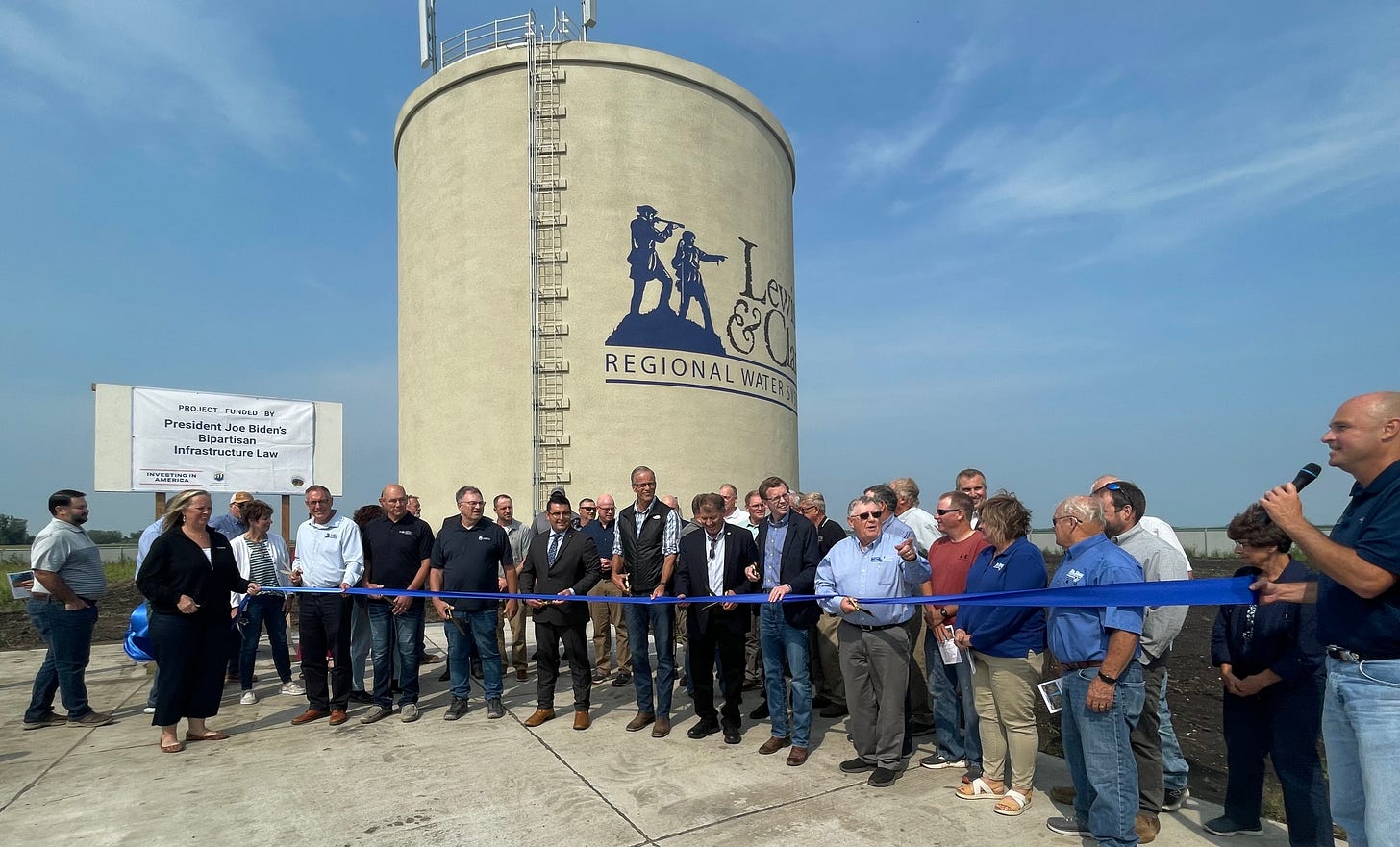MISSION ACCOMPLISHED: Lewis & Clark makes last South Dakota connection
After joining regional water system at conception more than three decades ago, regional water turned on for city of Madison
President George H.W. Bush was entering his second year in office. Phil Collins’ “Another Day in Paradise” dominated radio airwaves. And a grand plan was being hatched to pump Missouri River water to hundreds of thousands of South Dakotans for the first time ever.
Now, more than three decades after communities and water districts across the Iowa, Minnesota, and South Dakota tristate region joined forces to establish the Lewis & Clark Regional Water System, the last South Dakota connection is complete.
NEWS: Harrisburg not taking the money on state prison sewer proposal
Earlier this month, the city of Madison — an original member when the system was incorporated in 1990 — began receiving water from Lewis & Clark. And with that accomplishment, more than 34 years and nearly a billion dollars in the making, dozens turned out for a ribbon-cutting ceremony commemorating the milestone.
“Initially, they weren’t excited to bring water from the Missouri River in Vermillion all the way to Madison — that’s almost a hundred miles that you’re moving water,” Madison Mayor Roy Lindsay recounted with a brand new, $1 million reservoir towering over the gathering. “But things started moving.”
But once established in 1990 with Madison on board, progress on the vision to bring reliable and clean water to the tri-state region slowed. And not until 2000 did Congress authorize and dedicate funding for Lewis & Clark.
And even after that legislative breakthrough, the wait was only beginning for Madison — the northernmost community in the 20-member water system.
Lindsay said originally, the city figured it would be connecting to the system within 10 years of construction beginning. But a slower-than-anticipated buildout — work relied heavily on federal funding — required even greater patience.
“But now, with the direct connect, this is a great day for Madison,” he said.
System-wide, Lewis & Clark’s system pumps up to 44.19 million gallons a day from the Missouri River, provided to members allotted supplies based on established capacity agreements. For Madison, it’s entitled to one million gallons per day.
And when a system-wide expansion project Lewis & Clark has underway is complete, Madison’s share will jump by 581,000 gallons per day.
In attendance were all three of South Dakota’s Congressional delegates: Sens. John Thune and Mike Rounds and Congressman Dusty Johnson.
All three were involved in advancing the Lewis & Clark project prior to their current roles as public servants.
Rounds, as governor, helped commit state funds toward the project in the early 2000s when Johnson was working on his staff, while Thune was serving in the U.S. House of Representatives when the first federal funds were appropriated for it.
Today, more than $530 million in federal funds have been allocated for the construction of the project, with states, local governments, and water districts putting in a 10 percent match each.
Of those federal dollars, $152.5 million came from the Bipartisan Infrastructure Law passed by Congress and signed by President Joe Biden in 2021.
U.S. Bureau of Reclamation Deputy Director Roque Sanchez told The Dakota Scout following the ceremony that those funds expedited the ability to connect Madison by years.
Later this year, Sibley, Iowa, will be the last member to hook on. And that means South Dakota’s federal policymakers — and everyone involved in bringing the Lewis & Clark Regional Water System to fruition — can take joy in the final completion of the project.
“We’re getting close to the finish line,” said Troy Larson, executive director.















So...more than 30% of the funding that enabled Lewis & Clark to grow and serve Madison...came from a Congressional act that all 3 of our Congressmen voted NO on, but they weren't ashamed to show up at the celebration...Is that what you're saying?? Then why not say it?
Susan, Dakota Scout throwing the GOP under the bus for their voting record will never happen.